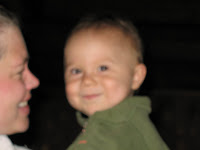 I’ve read every single book Jonathan Tropper has ever published, oddly enough. They’re utterly readable works of commercial fiction that swoop in, grab a heart string or two, and carry you off into a story complete with humour and wit, with a healthy dose of good storytelling. Highly plot driven but ultimately about the main character, Doug Parker, How to Talk to a Widower is certainly as enjoyable as his two previous books, The Book of Joe and Everything Changes.
I’ve read every single book Jonathan Tropper has ever published, oddly enough. They’re utterly readable works of commercial fiction that swoop in, grab a heart string or two, and carry you off into a story complete with humour and wit, with a healthy dose of good storytelling. Highly plot driven but ultimately about the main character, Doug Parker, How to Talk to a Widower is certainly as enjoyable as his two previous books, The Book of Joe and Everything Changes.
The title refers to a column the protagonist begins to write for a men’s magazine in the US upon the tragic death of his wife. Their relationship told mainly in flashbacks, and Doug’s inability to move past her death and get on with his life forms the emotional epicenter of the book. Hovering on the sidelines as he grieves are his highly dysfunctional family (a doctor of a father who has had a stroke; two sisters who take high-maintenance to new heights for completely different reasons; and a mother who pops prescription medicine and dolls out advice with the dryness of the martini she’s consistently holding in her hands), his friends (some, ahem, friendlier than others), and his teenage stepson. All the characters seem to orbit around Doug’s emotions until they simply can’t take it any longer. And the progression from widower to man finding his way in a life he never expected to find himself is oddly satisfying. It’s a sweet, satisfying, perfect-for-plane-rides book that kept me good company while we flew to Mexico.
I envy Tropper’s voice, the ease in which he writes tragedy into his characters, and the sweetness in terms of everyday family life he finds to colour out the edges of each of his books. On the whole, I’m willing to forgive the clichés, the movie of the week plot devices, in favour of wholly embracing the lovely mess Doug creates of his life. I got a little teary, I’ll admit.
PHOTO IN CONTEXT: The ARC resting on my tray table on top of two issues of Vanity Fair that I finished first. I think, if we had any spare cash at the moment, I would subscribe. Can one truly subsist without knowing the crazy ins and outs of world royalty you’ve never heard of? Without the February “starlet” who’s career plummets after their cover shot? Without the rambling articles of whats-his-name? Sigh.





